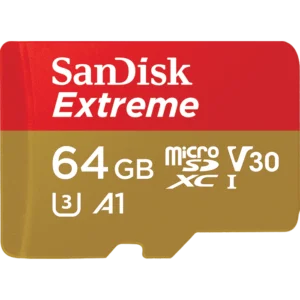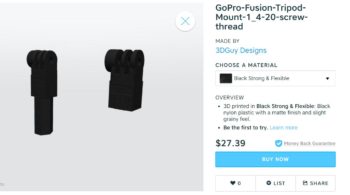
Originally posted on: www.roadtovr.com
Mozilla Hubs is the company’s impressive WebXR social app which allows users from almost any device (VR or not) to jump into a virtual room with the click of a link. But the company’s ambitions go much further; soon Mozilla will take a major step toward achieving its “master plan” by launching Hubs Cloud.
Hubs is perhaps the most ambitious WebXR project to date—an entirely web-based, device agnostic virtual space that can be joined and shared with a plain old URL through a Web browser.
By that virtue, Hubs is part of the Web itself—the vast network of sites accessible and navigable between one another. Most other social VR apps are built atop the Internet—the infrastructure underlying the Web—but do not interconnect with the Web itself.
Hubs developer Greg Fodor reasons in a recently published post that a global metaverse is most likely to succeed if it’s a genuine part of the Web; it’s that principle which has been guiding the strategy and development of Hubs.
In the post, Fodor explains Mozilla’s “master plan” behind Hubs, which includes the eventual launch of Hubs Cloud (coming “soon”), an open-source version of Hubs which can be hosted on any Web server, by anyone.
Much like how a website is hosted on a server, Hubs Cloud would thus be decentralized and could be tailored to the needs of each entity using it, while continuing to be part of the Web.
This is a wholly different approach to other metaverse projects, most of which aren’t part of the Web (even though they use the Internet to connect users).
Mozilla believes that a global metaverse won’t be a closed platform designed with top-down use-cases in mind; rather it will be a network of decentralized servers hosting virtual spaces which are customized to the needs of each host.
By that virtue, Fodor says that Mozilla has specifically avoided building certain features into Hubs, expecting that such features are best built from the ground-up based on user needs and by leveraging existing Web-based tools and capabilities.
Fodor does make a compelling argument for why a metaverse built as part of the Web is more likely to succeed than one that’s not, and Mozilla’s approach to the metaverse is definitely forward-thinking.
My take? Although I agree with most of Fodor’s points, the Web emerged in an era before anyone truly understood its world-altering implications; had governments and corporations of the era known just how important the Web would become, they would have fought tooth-and-nail to ‘own’ it and have centralized control.
Today the global influence of the Web is known, and it’s more obvious now that owning the metaverse of the future will bestow the owner with incredible, global influence.
Similar to the social networks of today, the first metaverse that reaches scale—whether open or closed—seems likely to win and continue to hold its ground thanks to the network effect.
While I think an open and decentralized metaverse is vastly preferable to one owned by one or a handful of corporations or governments, companies like Facebook (which is already building its own metaverse project, Facebook Horizon) are able to focus far more resources on ‘capturing’ the metaverse than any ground-up decentralized approach can muster.
That said, I hope I’m wrong. The decentralized nature of the Web is a critically important feature that should extend to the metaverse to ensure that no single entity gets to make the rules for the entire metaverse.

What is 360 VR Video?
360 video is a video that is recorded in all directions at the same time with multiple cameras. The videos are stitched together either internally in the camera or externally using special software.
It then forms one spherical video that is controlled by the viewer, enabling them to look up, down, right or left at their discretion.
Is 360 Video Virtual Reality?
I want you to be the judge.

Recommended MicroSD Card for use with the Fusion 360 camera
How are you watching your 360 VR Video?
Are you watching on your PC?
Is it Facebook? YouTube? Veer.TV ?
Or better still, are you using your Samsung Galaxy Smartphone with your Samsung Gear VR Headset?


Or are you using another smartphone with a Google Cardboard? Google Daydream?
Leave a comment below. Let us know what you like or don’t like. If you have seen a 360 VR video that you think is awesome, tell us, and we will feature it.
What type of VR Headset do you own? Or do you watch with your computer? Smartphone?

Do you have a VR camera? Ricoh Theta S? Ion360? Samsung 360 gear? Insta360?
And if you are looking for 360 Video Production Services, contact Al Caudullo [email protected]
With 37 years of Media experience, we can Deliver More for You in 360 Video. Click here to see what our customers say about our work
Utilizing state of the art technology, Al Caudullo, and his team has been delivering award-winning compelling productions spanning the globe. Exotic destinations blended with unique cultural experiences give viewers an experience like no other.
From vibrant American cities like San Francisco and Las Vegas to the isolated mountains of Mongolia. From ancient civilizations of Cambodia and Myanmar to the lush resorts of Southeast Asia and beyond. All from the comfort of your living room.



